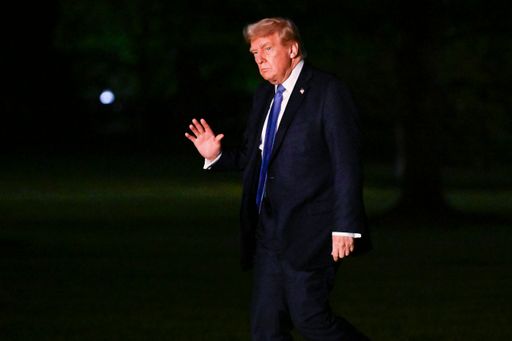US President Donald Trump set the cat among the pigeons recently when he put forward a radical proposal to end the Russia-Ukraine war, suggesting that Kiev recognise Moscow’s annexation of Crimea.
Trump’s proposal comes amid renewed efforts – including the recent Istanbul talks between Russia and Ukraine – to end the more than three-year-long war, the biggest military conflict in Europe since World War II.
However, there are fundamental flaws in the US president’s proposal.
Any legitimisation of Russia’s annexation of Crimea would not only undermine Ukraine's territorial integrity but also deal a severe blow to one of the fundamental principles of international law: the inadmissibility of changing borders by force, which might even affect other parts of the world, such as Gaza.
The Crimea issue is not merely a territorial dispute, but a matter of historical justice, human rights, and regional stability. The future of Crimea should not be shaped solely by great powers, but by the will of its native peoples, especially the Crimean Tatars.
True and sustainable peace can only be achieved in a setting where historical facts are acknowledged, and all communities are equally represented.
Crimea: From khanate to assimilation
Although there are differing views on the meaning of the word ‘Crimea’, there is no dispute that it derives from Turkish. The Crimean Tatars descend from the Kipchak branch of the Turkic peoples.
Their roots in Crimea trace back to the 13th century, to Genghis Khan’s Mongol Empire.
With the establishment of the Crimean Khanate in the 15th century, Crimea gained political identity and, by the 16th century, came under the suzerainty of the Ottoman Empire, becoming an important centre of the Turkic-Islamic civilisation.
However, after the Treaty of Küçük Kaynarca in 1774, Russia openly revealed its ambitions over Crimea and annexed the region in 1783.
This historical turning point marked the beginning of great tragedies for the Crimean Tatars. In the following years, mass migrations, deportations, and policies of cultural assimilation drastically altered the region's demographics and socio-political structure.
One of the most tragic events was the mass deportation carried out in 1944 on the orders of Soviet leader Stalin. Hundreds of thousands of Crimean Tatars were forcibly sent to Central Asia, and thousands died en route.
While Crimean Tatars made up nearly 90 percent of the peninsula’s population in the 18th century, this ratio has dropped to around 10 percent today, the result of historical injustice and demographic engineering.
.jpg?width=512&format=jpg&quality=80)
Power struggle in the Black Sea
Located on the northern shores of the Black Sea, Crimea holds a geopolitically critical position.
The naval base in Sevastopol is a vital hub for Russia’s Black Sea Fleet. Crimea, which was transferred to Ukraine during the Soviet era by Khrushchev, was internationally recognised as Ukrainian territory after the independence of Ukraine in 1991 and again acknowledged its sovereignty in the existing borders under the 1994 Budapest Memorandum by Russia.
However, in 2014, the region was invaded by so-called “little green men”, unmarked Russian soldiers, and a controversial referendum was held, which the international community did not recognise.
Moreover, the referendum was boycotted by the Crimean Tatar Turks. Moscow annexed the peninsula almost immediately by a fait accompli.
After the illegal annexation, the head of the Mejlis Refat Chubarov and the leader of the Crimean Tatar people, Mustafa Abdulcemil Kirimoglu, were banned from entering the peninsula.
The pressures on Crimean Tatars intensified further, the Mejlis of the Crimean Tatar People was banned and now operates in exile from Kiev.
This situation reveals that the Tatars have been systematically marginalised not only demographically but also politically and culturally.
For a healthy and sustainable solution, efforts to resolve the future of Crimea must be based on international law, diplomacy, and historical justice, not military power.
The most rational approach for Russia would be to develop an “alternative formula” that is also acceptable to the international community.
Such a formula should include transparent and fair negotiations involving all stakeholders regarding Crimea’s status, the establishment of a pluralistic and democratic governance model in the region, along with a new referendum held with international observers and the participation of Crimean Tatars in exile.
Balance in the Black Sea
Recognition of Crimea's illegal annexation by Russia would also be a blow to the hard-earned balance in the Black Sea, which Türkiye and neighbouring countries have worked diligently to maintain.
The Organization of the Black Sea Economic Cooperation (BSEC) was established in 1992 as a result of Türkiye’s initiative to promote stability, predictability, and security in the region by enhancing economic dialogue and cooperation among its 13 neighbouring member states.
Since then, Türkiye has shown a strong interest in regional stability, with Ukraine and Russia serving as vital trade partners.
Ankara places the utmost importance on the safety of the Black Sea as a trade hub, especially since it controls access to the strategic straits.
That is why Türkiye has opposed the illegal annexation of Crimea from day one.
In this sense, Russia risks jeopardising the golden age of Ankara-Moscow relations. Instead, Moscow should focus on a solution that considers the concerns of all parties, a win-win for the region.
To sum up, the future of Crimea must be determined through inclusive, lawful, and just means that respect the rights and voices of its indigenous peoples, particularly the Crimean Tatar Turks.
Lasting peace in the region depends on recognising historical injustices and establishing a democratic and pluralistic governance framework.
Türkiye’s balanced and constructive role can serve as a vital example in supporting diplomacy over conflict.




















